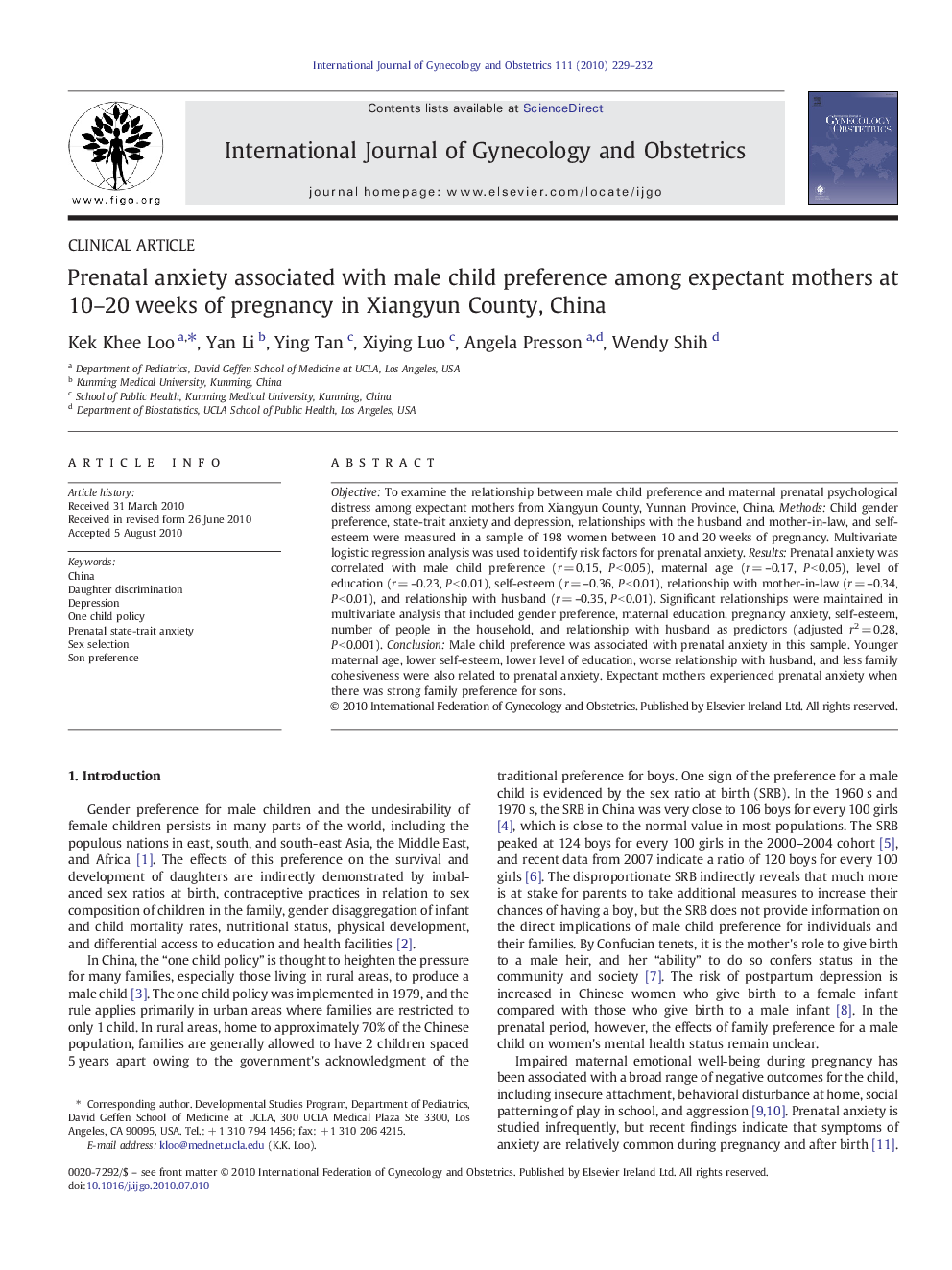| Article ID | Journal | Published Year | Pages | File Type |
|---|---|---|---|---|
| 3954436 | International Journal of Gynecology & Obstetrics | 2010 | 4 Pages |
ObjectiveTo examine the relationship between male child preference and maternal prenatal psychological distress among expectant mothers from Xiangyun County, Yunnan Province, China.MethodsChild gender preference, state-trait anxiety and depression, relationships with the husband and mother-in-law, and self-esteem were measured in a sample of 198 women between 10 and 20 weeks of pregnancy. Multivariate logistic regression analysis was used to identify risk factors for prenatal anxiety.ResultsPrenatal anxiety was correlated with male child preference (r = 0.15, P < 0.05), maternal age (r = –0.17, P < 0.05), level of education (r = –0.23, P < 0.01), self-esteem (r = –0.36, P < 0.01), relationship with mother-in-law (r = –0.34, P < 0.01), and relationship with husband (r = –0.35, P < 0.01). Significant relationships were maintained in multivariate analysis that included gender preference, maternal education, pregnancy anxiety, self-esteem, number of people in the household, and relationship with husband as predictors (adjusted r2 = 0.28, P < 0.001).ConclusionMale child preference was associated with prenatal anxiety in this sample. Younger maternal age, lower self-esteem, lower level of education, worse relationship with husband, and less family cohesiveness were also related to prenatal anxiety. Expectant mothers experienced prenatal anxiety when there was strong family preference for sons.
